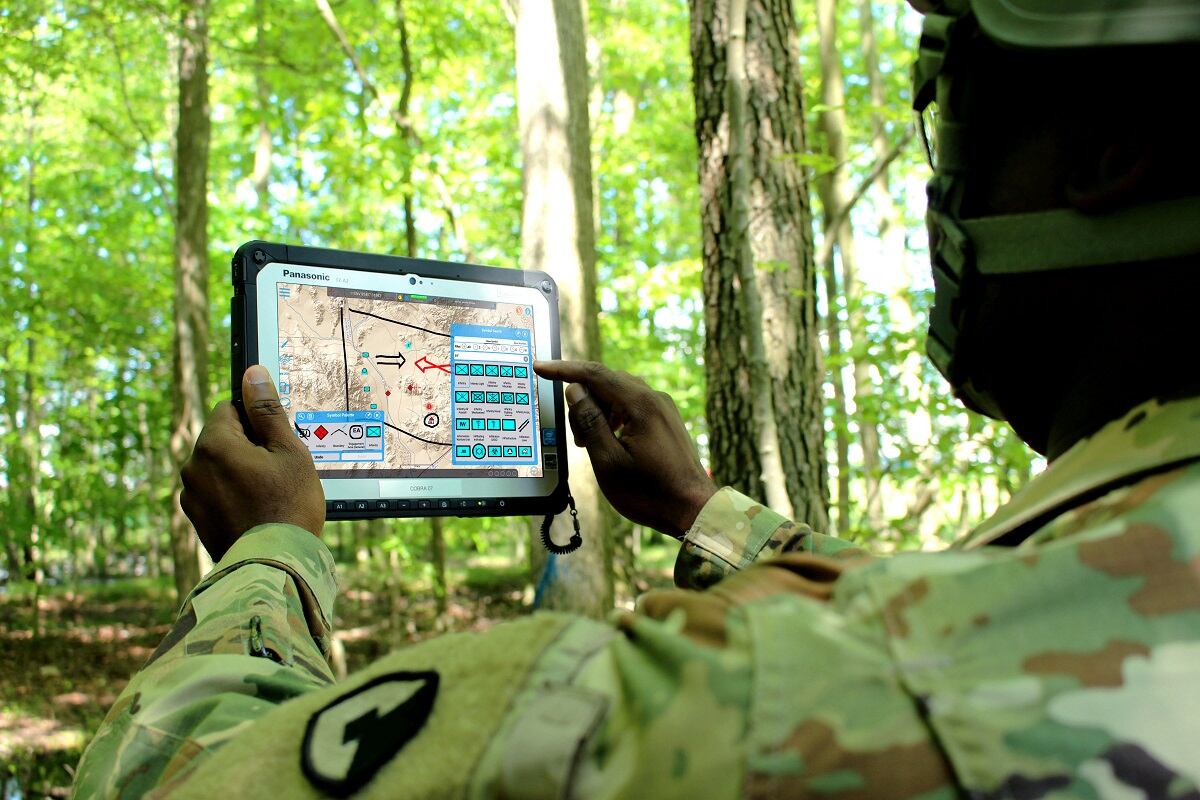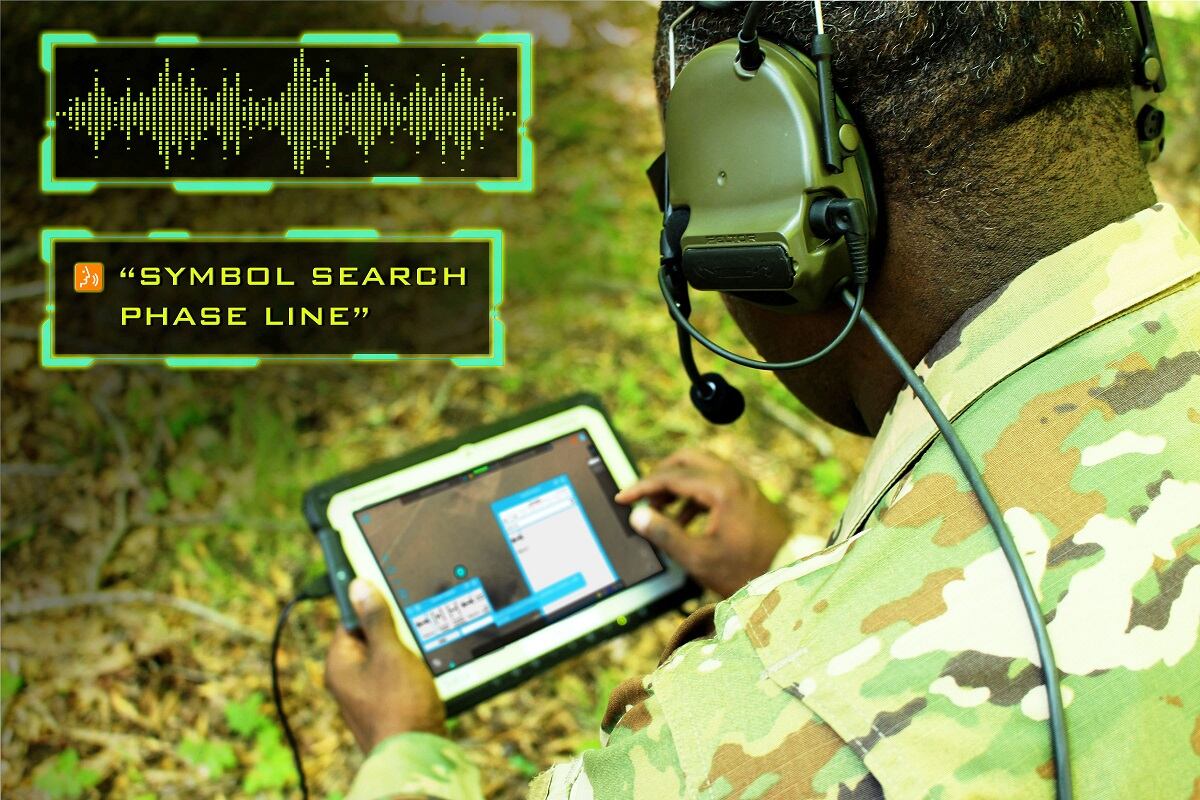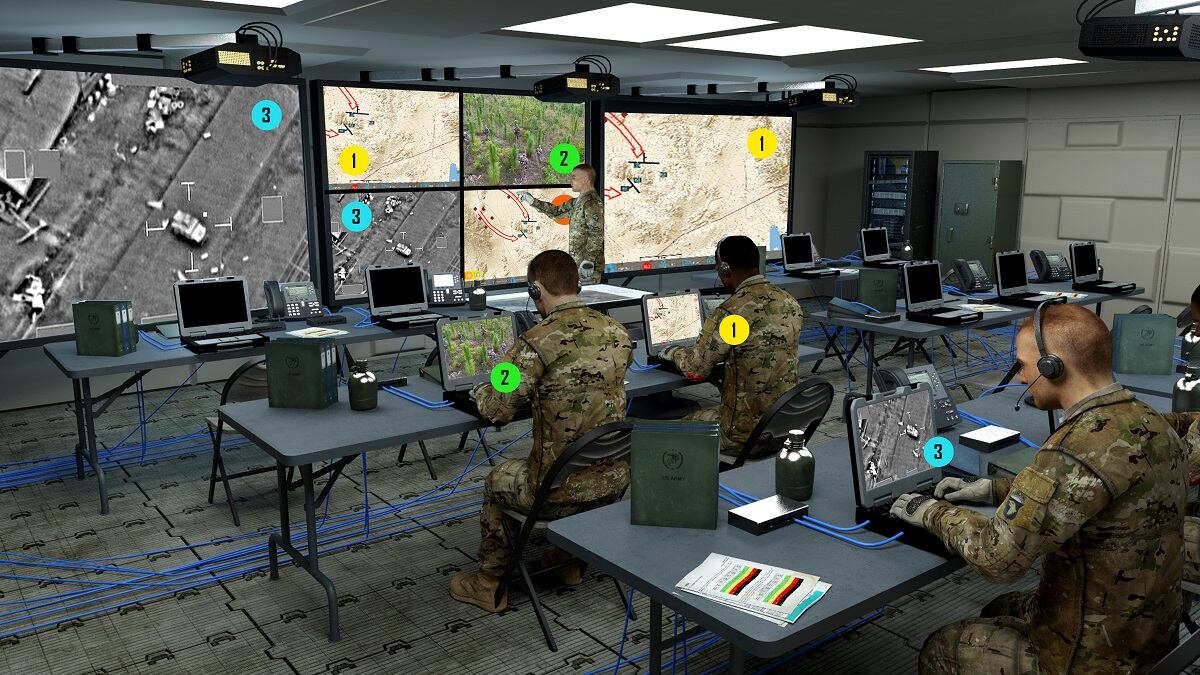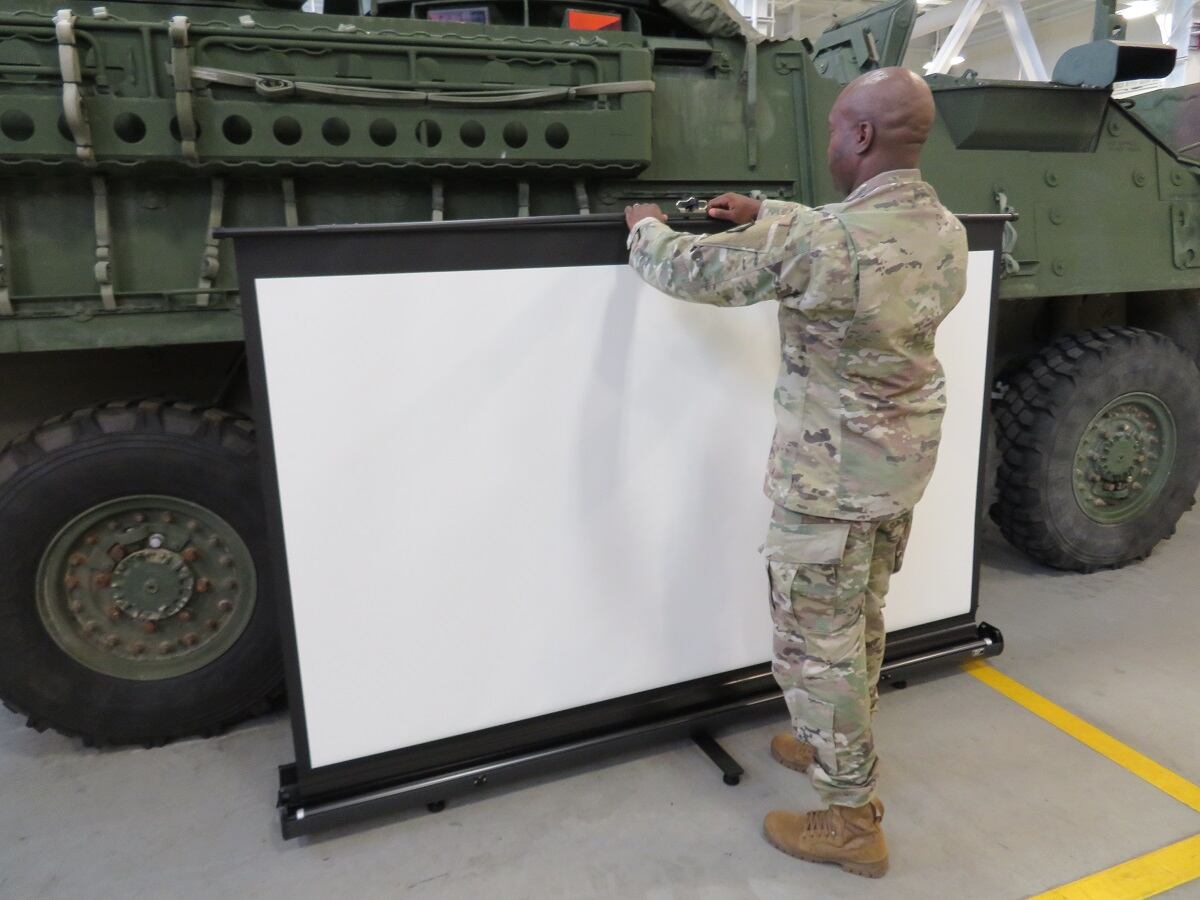ABERDEEN PROVING GROUND, Md. — As the Army improves its mission command posts, one of the key areas where it has made changes is how soldiers can operate computers for everything from sharing information to tracking friendly and not-so-friendly forces.
Staff at the Army’s Research Development Engineering Command have upgraded items from tablet-style computers, display systems and ways to use voice commands rather than keyboards for controlling devices.
During a recent display at Aberdeen Proving Ground, Maryland, soldiers who work as trainer/observers at the National Training Center at Fort Irwin, California, gave demonstrations of the new capabilities for the Tactical Computing Environment.
Sgts. 1st Class Sheena Ferrell and Ramon Contreras Jr. showed how soldiers using the new devices can share “one common operating picture” with each other.

Users can track individual vehicles on the wide-ranging training area, mark obstacles, terrain features, enemy positions and other items with preprogrammed symbols and use a chat feature to send messages or attachments to other soldiers.
Alongside those efforts is another piece of software that gives soldiers a Siri or Alexa-type voice command capability, but contained to the device, rather than relying on the computing cloud or an Internet connection.

The program, Single Multimodal Android Service for Human Computer Interaction, or SMASH, has been a part of the larger effort to improve Expeditionary Mission Command across the Army.
Users can simply speak commands such as “Show Blue Force layers,” or “big picture,” to have icons or elements appear or disappear on the digital map.
Another quick-use feature is to mark specific incidents for later use in after action reports.
The demonstrator gave the example of selecting a shorthand for marking a spot for a roadside bomb, speaking the words “French fries,” and the device immediately marked and alerted the map, which would also be relayed to those sharing the same features.

Some lower tech but important additions are portable, roll-up displays, and software called Display Viewer Application that replaces a massive hardware device used to share computer screen displays across a closed, Local Area Network within the command post.

Todd South has written about crime, courts, government and the military for multiple publications since 2004 and was named a 2014 Pulitzer finalist for a co-written project on witness intimidation. Todd is a Marine veteran of the Iraq War.







